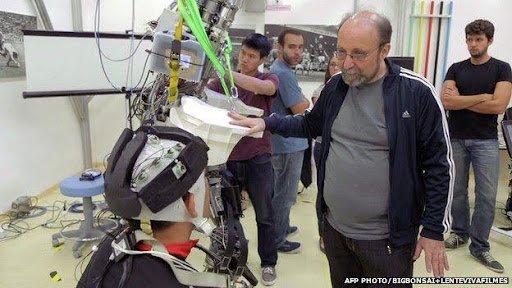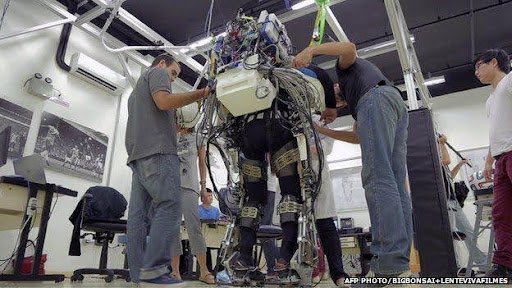You are a Brain Changer.
Brain Awareness Week
March 11 – 15th 2024
How much more would you like to know about your brain?
Would you like to know more about how your brain works?
And about optimising the health of your brain?
Brain Health Awareness Week in 2024 opens this year with the theme ‘The Changing Brain’. Leading Brain Foundations recognise that all around the world people want to know more about their brains and how their brains are changeable. The groups that organise these awareness weeks also appreciate that people want to know more about how they can be proactive about their own brain health and want to learn more about brain diseases, disorders, and injuries and how best to support our brains in the best ways when we need to.
This week in France they are asking:
‘The Brain: Perfect or Imperfect?’
In the USA, they’re enjoying activities that expand our knowledge of the future of neuroscience. Everything from brain and bio-hacking to the impacts of AI, and always exploring remarkable brain-computer interfaces.
In Europe it’s all about the powerful call to action:
‘No Health Without Brain Health’
And here in Australia, The Brain Foundation is covering different brain-based disorders each day of the week, with a focus on: Dementia Risk Factors and Brain Health; Concussion Resources; Cerebrovascular Health; Patient Stories; Migraine and Brain Health at Work
Locally we even have brain events for Families happening at SciTech.
If there was ever a week to access international resources, lectures, debates, webinars, live chats with neuroscientists, Q&A’s…you name it in the www of information sharing about brains – this is the week!
So, what would you like to know?
We thought we could cover some introductory information that touches on a cross-section of what many of these amazing groups are offering this week. So, this is a little about how your brain works, a bit about brain-based disorders and brain-based therapies, and a few thoughts about nurturing your own happy healthy brain.
Photo by Alina Grubnyak on Unsplash
First, consider this very broad idea of neurone numbers:
100 billion neurones in your brain.
100,000,000,000
Each individual neuron connected to a thousand other neurones.
Then, this concept of connections in the brain:
‘A single human brain has more switches than all the computers and routers and internet connections on earth’ Stephen Smith (PhD)
So, right there ‘sitting on your shoulders is the most complicated object in the known universe.’ Michio Kaku
So, how does this very complicated object with so many switches and connections work?
Well, we’re learning more and more about how brains work every day.
In a simple way, these billions of brain cells (or neurones) send signals, or communicate with each other, using action potentials. An action potential is a shift is the neurons potential electric energy. Action potentials can trigger communication of both chemical and electrical messages. Messages communicated electrically and chemically in our brains help us to think, feel and do. Different neurotransmissions for different actions and effects.
We can measure this electricalactivity as ‘brain waves’. As neurosciences develop we continue to get better at measuring and understanding brain cell activity, brain waves and connections. QEEG Brain Scans and 3D Brain Mapping provides many ways to analyse how a brain is functioning. These detailed and personalised brain scans can be used to accurately understand how a brain is working. QEEG Brain Scans can then be used to develop individualised brain-training programs with the right professional guidance.
Photo by Milad Fakurian on Unsplash
Brain-based disorders include those that are being discussed at Brain Awareness Week in 2024: Dementias; Concussion and Post Concussion Syndrome; Headache and Migraine.
Other conditions where brain-based therapies can be helpful are: Anxiety; Depression; ADHD; Specific Learning Disorders; Autism Spectrum Disorder; Stress Disorders; and Chronic Pain.
Non-invasive brain-based therapies include: QEEG directed Neurofeedback Therapy; tDCS Brain Stimulation and Biofeedback Training.
Neurofeedback
QEEG led neurofeedback is a drug-free treatment that uses a sophisticated brain-computer interface to ‘strengthen’ or ‘re-train’ the brain. Neurofeedback training is a proven, targeted, and effective way to retrain specific areas of your brain so these areas are able to function better.
Back in 2014, 10 years ago now, we saw applied EEG technology capture a global audience at the opening of the World Cup in Brazil when Juilano Pinto, a young man with complete paralysis of his legs, wore an incredible bionic exoskeleton to kick the first ball at this huge global event. The exoskeleton that he was wearing was directly controlled by his own brain activity through a helmet-mounted EEG machine.
Seemingly futuristic space-age brain-based technologies are used in highly accessible, practical, and functional ways to help people all over the world today.
AFP PHOTO/BIGBONSAI+LENTEVIVAFILMES
tDCS
Another state-of-the-art brain therapy is tDCS (transcranial direct current stimulation). tDCS is a non-invasive brain-based treatment that delivers a very weak current to the brain. tDCS increases the excitability, plasticity, and potential for positive change in the region of the brain targeted with tDCS. tDCS is probably best known as a safe and drug-free treatment for depression from studies conducted by The Black Dog Institute, but research also shows that tDCS can be helpful for people with chronic pain, difficulties with memory, and some movement and other disorders. People often perform specific activities or exercises, during and after each treatment session, when their brains are experiencing an increased potential for change to drive it in the most positive direction possible.
Biofeedback
Biofeedback is another active treatment option that works with the deep ways your brain and body communicate with one another. The vagus nerve is a long wandering nerve, that runs from your brain right through your body - even through your diaphragm muscle that controls your breathing. It is a vital part of this brain-body network. You can influence some of the feeling and thinking parts of the brain with specific breathing and cognitive exercises that are tailored to you and what your nervous system can manage. You can change what your brain and nervous system are doing in a rapid and positive way using biofeedback techniques.
When it comes to nurturing a brain every day, we can turn our attention to a few obvious, but perhaps under-appreciated, lifestyle factors that are key to the health of our bodies and our brains. Parts of our day-to-day lives like: exercise; diet; sleep; stress management; mental activity; social connection; and screen time – to name a few.
Let’s explore three of these:
Exercise
Recommendations for specific types of exercise for different types of effects on our bodies and brains would take many hundreds of pages to outline well. But an example of one could be the most recent research and clinical guidelines for the effectiveness of exercise for depression specifically recommending:
150-300 minutes of moderate intensity physical activity per week.
-OR-
75 – 150 minutes of vigorous intensity physical activity per week.
These guidelines also support a combination of: aerobic exercise; strength based exercise; as well as Yoga, tai chi, Pilates or qi gong practices that include - breathwork, mindfulness and spiritual components.
What is most important is that we move our bodies every day.
Walking outdoors is possibly one of the easiest ways to introduce exercise into a more sedentary lifestyle, and we know our brains love it.
Diet
The Mediterranean Diet, researched for over 50 years, continues to hold its place on the lists of diets recommended for body and brain health. This diet should always be considered a traditional and heritage diet, more a way of life, because the research is based on not just the diet but also the lifestyle of villages around the Mediterranean around the 1960’s. The diet is: plant based; packed with good fats and protein - often from oily fish, nuts, seeds, and eggs; nothing preserved or kept in any packets – everything is made from scratch. The lifestyle includes growing your own food; connection to the natural world; and walking your local area to work, shop and visit others – maybe even for a slurp of workers wine (that for us these days is more like a natural piquette wine) and a proper chat.
Living this way has evidenced outstandingly significant positive impacts on a number of health risk factors, including: cardiovascular disease; cancer; Parkinson’s disease; Alzheimer’s disease; Stroke; Diabetes; and Neurodegenerative Diseases. The body and brain benefits are undeniable and continue to be researched and adapted, as you will find with the now popular MIND and DASH diets.
Where we can’t get enough essential nutrients for our brains in our usual diets, good quality and specific supplementation with nutraceuticals can be helpful.
Photo by Brooke Lark on Unsplash
Sleep
Sleep is an underrated function of the brain. Sleep is essential for life. Sleep disorders can be serious enough to impact how a person is able to function physically, mentally, socially and intellectually. Well established relationships are known between insomnia and other brain-based disorders including ADHD, Anxiety, Depression and Dementias.
We know important brain activity happens when you sleep - your body may rest, but your brain does not. Organisation, encoding and consolidation of memories takes place, and the incredible clean-up system in your brain can only happen in certain phases of your sleep. Give or take a little on either side, most adult brains work best with around 8 hours set aside for sleep.
There is a world of interesting information available during Brain Awareness Week 2024 across all the links above to international organisations providing inspired opportunities to engage and learn more about your brain.
These are just a few insights into some of the ways that you have great power in steering the way your brain changes every day. If reading this has made you wonder about how your unique brain functions and changes, with everything you think, feel, and do each day, the Team at The Perth Brain Centre embrace you and your curiosity.
You can watch, read, call or email, to find out more today.
About the author - Ms. Emily Goss (Occupational Therapist, Senior Clinician, The Perth Brain Centre)..







